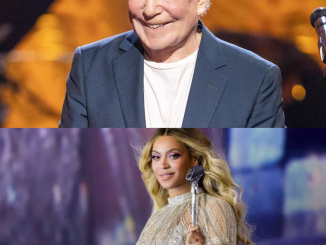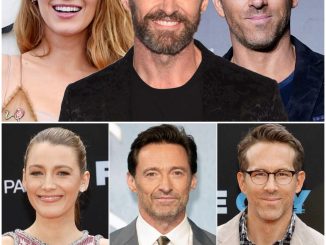In a dramatic twist that could redefine the relationship between celebrities and mainstream media, country music superstar Carrie Underwood has launched a high-stakes legal battle against the hosts of The View. Her move not only demands accountability for personal defamation but also raises a broader question about media responsibility, broadcast integrity, and the legal limits of televised commentary in the digital age.
According to emerging reports, the iconic singer filed a formal lawsuit following a particularly contentious segment in which the hosts of The View allegedly delivered on-air commentary that Underwood describes as “deeply offensive and professionally damaging.” What started as a heated critique has now escalated into a multi-million-dollar lawsuit, with a jaw-dropping potential fine of $50 million and the looming threat of a permanent broadcast ban for the show.

A Clash Between Celebrity Reputation and Media Power
The tension between public figures and daytime television is nothing new, but Underwood’s response signals a shift in how celebrities are fighting back. No longer content with passive responses or PR spin, public figures are increasingly turning to the courts to protect their reputations from what they see as opinion-driven media attacks.
Underwood’s legal team argues that the statements made during the broadcast were not only factually incorrect but also crossed the line into character defamation. She insists that the segment’s tone and language painted her in an “irresponsible and damaging light,” ultimately undermining her credibility as a musician and public personality.
Her demand? Accountability—not just for herself, but for the broader culture of sensationalized broadcasting that she believes has strayed too far from journalistic fairness.
Media Ethics on Trial: Why This Case Could Set a Major Precedent
This lawsuit isn’t just about Carrie Underwood—it’s about the future of daytime television and the standards by which media outlets operate. In recent years, programs like The View have come under fire for prioritizing emotional reactions and viral moments over balanced commentary and responsible journalism.

Underwood’s case could potentially set a precedent in celebrity media law, especially as audiences become more sensitive to issues of media bias, cancel culture, and unverified claims made on live television. The question now is whether this lawsuit will spark industry-wide reform, or if it will simply become another headline in a media environment saturated with controversy.
Her team also asserts that by allowing such remarks to air unchecked, the producers and broadcasters of The View failed to meet their legal and ethical obligations—an argument that could influence how future television content is reviewed and vetted before going live.
Public Backlash and Support: A Nation Divided Over Media Conduct
While some critics argue that the lawsuit threatens freedom of speech and open commentary, many others applaud Underwood’s bold stand. They view her actions as a necessary pushback against the growing trend of celebrity shaming, especially when it stems from opinion-based entertainment masquerading as news.

Social media has lit up with support from fans and media analysts alike, many of whom argue that Underwood is using her platform to advocate for more respectful, fact-checked conversations on public airwaves. Her lawsuit has also inspired dialogue about the psychological and professional toll media commentary can have on high-profile individuals.
A Crossroads for Broadcast Media: Will This Lawsuit Force a Reckoning?
If Underwood’s case succeeds, it could set the stage for tighter media regulations, particularly around live programming, celebrity coverage, and the use of personal commentary on national platforms. Television producers and hosts may soon find themselves navigating a more complex legal landscape—where accountability is no longer optional, and the consequences for defamation are both financial and reputational.
For The View, the stakes couldn’t be higher. The possibility of a $50 million penalty and a broadcast license review represents a turning point for one of America’s most iconic daytime programs. Whether the hosts intended to defame or merely engage in spirited debate, the fallout is already forcing a deeper look at the culture of televised opinion and the boundaries between commentary and harm.
Looking Ahead: A Cultural Shift in Media Transparency?
As public discourse continues to evolve in the age of digital media, cases like Underwood’s are becoming a flashpoint for larger societal questions:
- Who decides what crosses the line in public commentary?
- Should television personalities be held to the same ethical standards as journalists?
- How can viewers trust that the content they consume is accurate, fair, and free from personal bias?
The outcome of this legal battle could provide answers that shape not just daytime TV—but the future of media law, celebrity rights, and audience expectations.
Carrie Underwood’s case is more than a headline—it’s a watershed moment for American broadcasting. And whether you side with the singer or the hosts, one thing is certain: the conversation about media accountability is just getting started.


